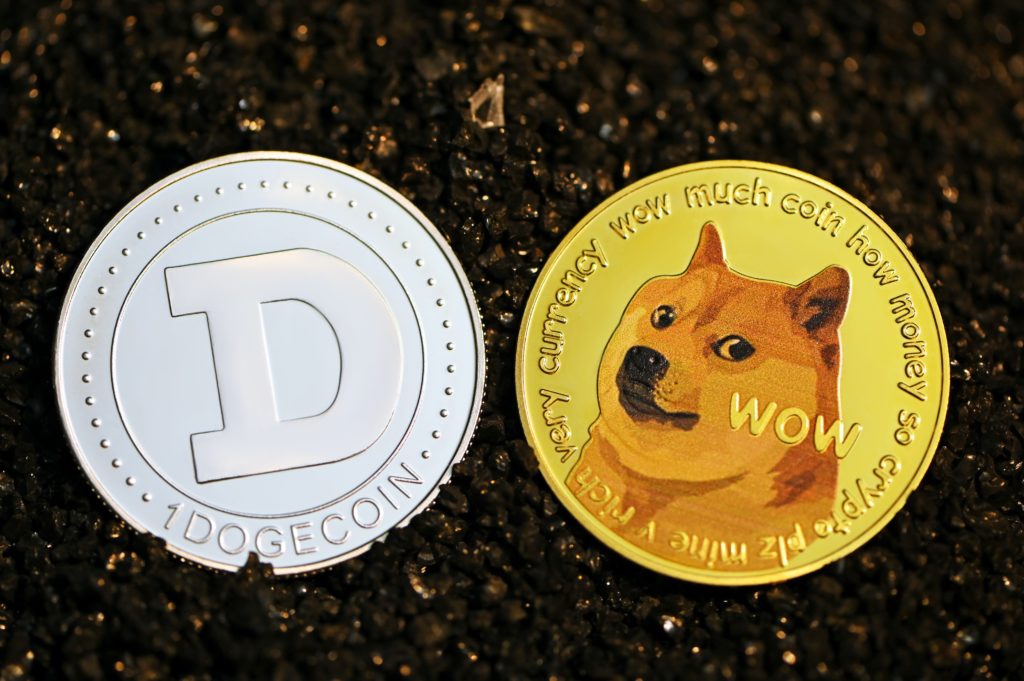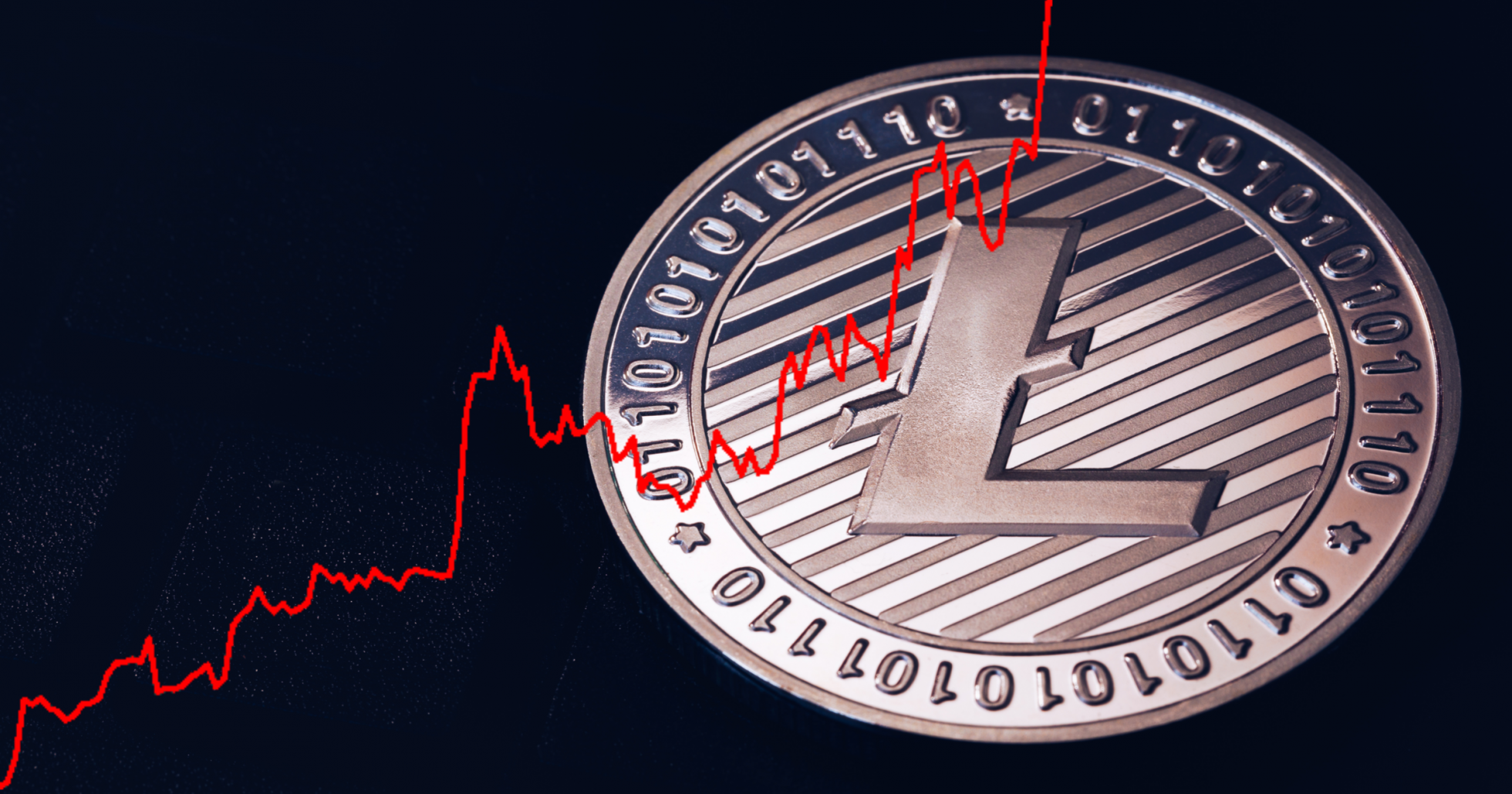Bitcoin is the first cryptocurrency created in 2009 by a person or group of people named Satoshi Nakamoto. Bitcoin was proposed as an alternative to the conventional banking system after the 2008 financial crisis. Unlike banks, the Bitcoin network is a decentralized anonymous peer-to-peer payment system designed in such a way that it is almost impossible for one person to gain control of this network.

Dogecoin (DOGE) was established in the US in 2013 as a joke but suddenly gained a large following. It has become a popular cryptocurrency (DOGE) used to tip content creators (mainly on Reddit and Telegram). Since the creators did not have any serious plans for their currency, they did not develop a roadmap and did not work too hard to improve their project. Dogecoin founder Jackson Palmer left the project in 2015.
Comparison of Bitcoin vs Dogecoin
DOGE may have been a cryptocurrency that started as a joke, but this altcoin effortlessly wiped smiles from cynical faces in 2021.
In the first four months of the year, this asset wins the Dogecoin vs Bitcoin battle in terms of profit. While Bitcoin has shown impressive performance, doubling between January 1 and April 30, Dogecoin has surged 8.150% over the same period. (This doesn’t even factor in ROI when both coins hit record highs.)
The tokenomics behind Dogecoin help us understand why this is a joke. One of the reasons Bitcoin is so prized by crypto enthusiasts is because it has a fixed supply of 21 million coins.
Billy Marcus and Jackson Palmer, a couple of bored software engineers who wanted to play a trick on this nascent market class, decided to imitate BTC by releasing over 100 billion Dogecoin tokens into the crypto sphere.
It is also worth noting that the DOGE supply is constantly increasing, which significantly reduces the value of coins in someone’s wallet. The figures show that 10,000 DOGE are minted every minute – that’s 15 million new coins every day. Meanwhile, as a result of the last halving in 2020, only 900 new BTC will enter the market, and in 2024 this figure will again decrease by 50%.
If you’re honestly weighing which Dogecoin or Bitcoin is better, make sure you take security into account. One of DOGE’s developers readily admitted that it was built in less than three hours, which means that the systems behind the cryptocurrency could be operational. Although the Dogecoin software was updated earlier in 2021, this was the first such update in two years.
DOGE is also not traded on all exchanges, unlike Bitcoin.
Part of the reason there has been so much hype around Dogecoin has to do with big names of celebrities, including rapper Snoop Dogg, Dallas Mavericks billionaire Mark Cuban and, of course, Tesla CEO Elon Musk. Whereas Bitcoin may have an edge in attracting investment from institutional investors, it’s fair to say that DOGE wins when it comes to public attention. This is evidenced by the fact that mentions of Dogecoin on social media have repeatedly outnumbered mentions of Bitcoin. The Outsider even surpassed BTC on Google Trends in early May.
Advantages and disadvantages of Dogecoin
The main advantages of dogecoin:
- fast speed of transfers;
- low commission;
- anonymity and decentralization inherent in cryptocurrencies;
- more advanced protection against hacking compared to Bitcoin and Litecoin;
- it is supported by many services and exchanges;
- a well-established community and reputation that will not let you just disappear;
- widespread popularity on taps.
But it still has its drawbacks:
- Weak support – the team is not as big as the leaders, and its plans are not so ambitious.
- Instability – the price of a coin rises or falls from time to time, and you never know what to expect from it. This applies to almost every cryptocurrency, but in the case of DOGE, it is more pronounced, even despite the rate self-stabilization system – its work leaves much to be desired.
- The popularity of dogecoin was provided exclusively by marketing, from the point of view of technology, it does not represent anything special, and can be supplanted by more advanced competitors.
Bitcoin pros and cons
- There is no single center: it is the entire system. It consists of users’ computers processing transactions.
- Accessibility for verification of all transactions by the computer of any user.
- Anonymity: without a wallet number, you cannot track who made a particular transfer. A unique access password is required to conduct transactions.
- Impossibility of hacking. To change information on accounts, you need a code issued by the system.
- The information entering the blockchain is verified by all participants. Their computers calculate the number of bitcoins – the “hash”. Data on all system operations are copied to users’ computers.
- High security. The system has two levels of protection and an access password. But if you are left without a password or your wallet number, then you will not be able to access it.
Minuses:
- Unstable course. Since the number of issued crypto coins is small, due to large transactions with their participation, the value can vary greatly, which will harm the participants in the system. Any information about a coin and cryptocurrency transactions can seriously change its course.
- Difficulty in forecasting. Bitcoin is a new system, and it is rather difficult to predict its future development. It is not known what will happen to her next.
- There are no guarantees. The price of bitcoin depends on the market, so it can go down a lot.
- By 2017, due to the influx of users, the workload of the system increased significantly. The increased number of operations revealed weaknesses.
- When transferring bitcoins, the commission can be 10-30 dollars, which is a lot for small transfers.
- Taking advantage of the inexperience of newbies, scammers try to get access to their wallets.
- Because the rate is noticeably jumping, cryptocurrency is unattractive for businesses.










